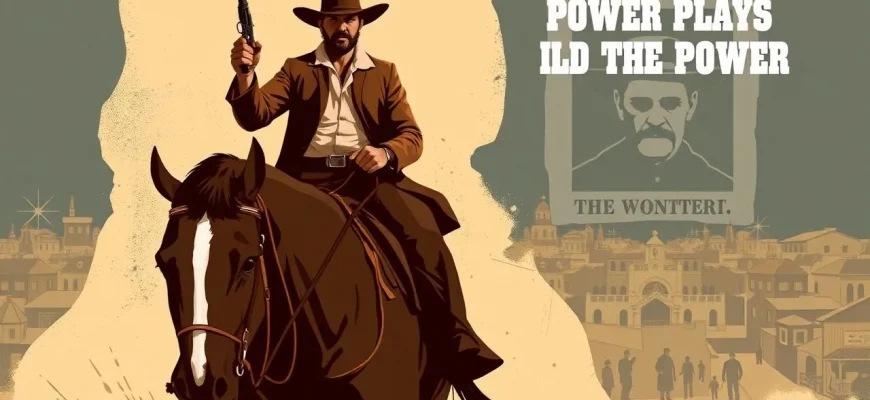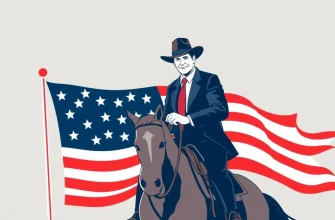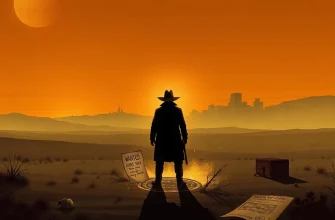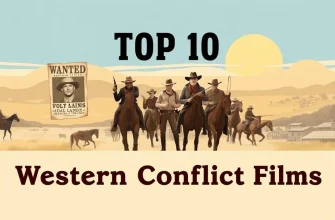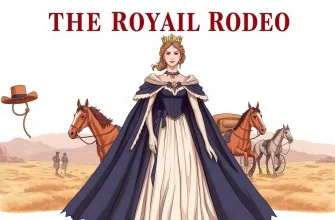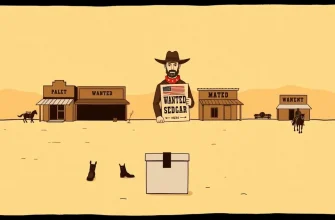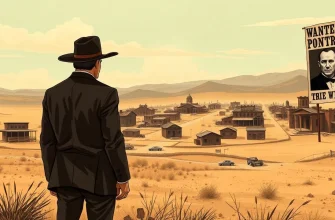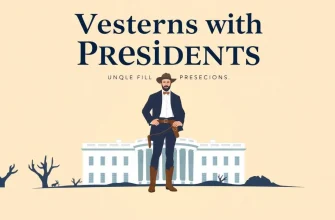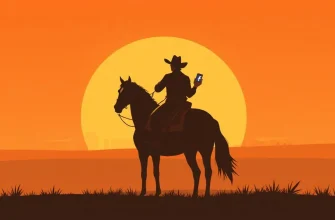The Western genre has always been a fertile ground for exploring themes of power, authority, and control. From the lawless frontier to the rise of civilization, these films showcase the struggle for dominance in a setting where might often makes right. Here's a curated list of ten Western films that delve deep into the dynamics of power, offering viewers not just thrilling narratives but also profound insights into human nature and societal structures.

High Noon (1952)
Description: A marshal stands alone against a gang of killers, showcasing the power of moral conviction against the backdrop of a town unwilling to stand up for justice.
Fact: The film was made during the McCarthy era, and its themes were often interpreted as allegories for the political climate of the time.
 Watch Now
Watch Now 
The Man Who Shot Liberty Valance (1962)
Description: This film examines the power of myth versus reality in the West, where a man's reputation can be more influential than his actual deeds.
Fact: John Wayne and James Stewart, both iconic figures of the Western genre, star together in this film, making it a must-watch for fans.
 Watch Now
Watch Now 
The Good, the Bad and the Ugly (1966)
Description: A tale of three men seeking a fortune in gold, where power shifts with every twist and turn, highlighting the raw struggle for dominance in a lawless land.
Fact: The film was shot in Spain, not Italy, despite being part of the Spaghetti Western genre, due to its landscapes resembling the American West.
 Watch Now
Watch Now 
Once Upon a Time in the West (1968)
Description: A complex narrative of power struggles over land and legacy, where the arrival of the railroad symbolizes the changing power dynamics of the West.
Fact: Sergio Leone's masterpiece was influenced by American Westerns but brought a distinctly European flavor to the genre.
 Watch Now
Watch Now 
The Wild Bunch (1969)
Description: A group of aging outlaws faces the end of their era, grappling with the shifting power structures as the Old West gives way to modern times. Their final heist becomes a metaphor for the decline of their power.
Fact: The film was highly controversial upon release due to its graphic violence, but it's now considered a landmark in the genre for its realistic portrayal of the West.
 Watch Now
Watch Now 
Unforgiven (1992)
Description: This film explores the power dynamics between outlaws, lawmen, and the townsfolk in a gritty tale of revenge and redemption. It showcases how personal power can be both a curse and a necessity in the harsh landscape of the Old West.
Fact: Clint Eastwood won his first Best Director Oscar for this film. The film also won Best Picture, making it one of the few Westerns to achieve this honor.
 Watch Now
Watch Now 
Tombstone (1993)
Description: The power of law enforcement is tested as Wyatt Earp and his brothers confront the notorious Cowboys gang in a battle for control of Tombstone.
Fact: Kurt Russell, who played Wyatt Earp, also co-wrote the screenplay under the pseudonym "Frederick James."
 Watch Now
Watch Now 
The Proposition (2005)
Description: Set in the Australian outback, this film explores the brutal power dynamics between settlers, indigenous people, and the law, where justice is often served with a heavy hand.
Fact: The film was shot in the harsh conditions of the Australian outback, adding to its gritty realism.
 Watch Now
Watch Now 
The Assassination of Jesse James by the Coward Robert Ford (2007)
Description: A psychological study of power, fame, and betrayal, this film delves into the relationship between the legendary outlaw Jesse James and his eventual killer, Robert Ford.
Fact: The film's title is taken directly from the headline of a newspaper article about the assassination.
 Watch Now
Watch Now 
True Grit (2010)
Description: A young girl hires a U.S. Marshal to track down her father's killer, exploring themes of personal power and justice in a world where the law is often in the hands of the individual.
Fact: This is the second adaptation of Charles Portis's novel, following the 1969 version starring John Wayne.
 Watch Now
Watch Now 
